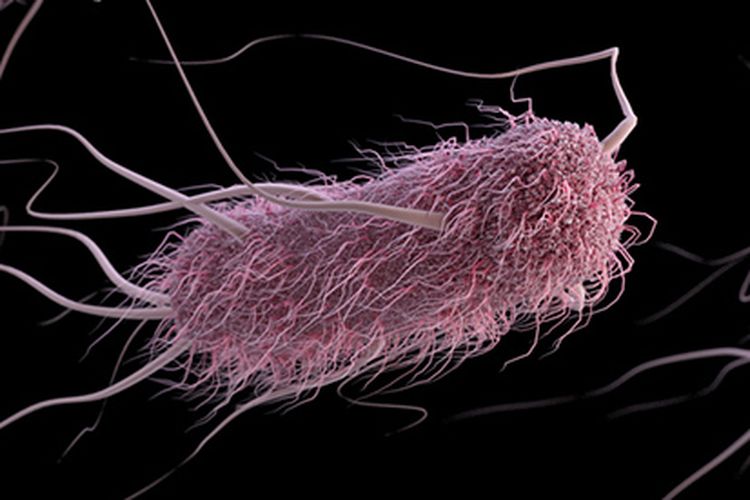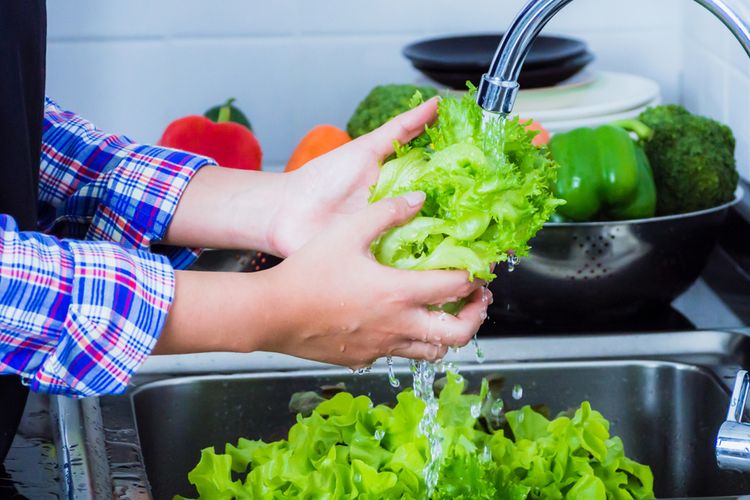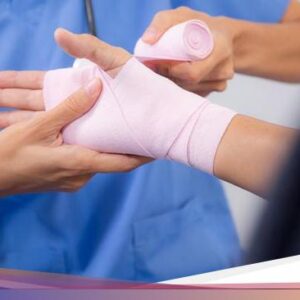KOMPAS.com – Maintaining food hygiene is important so that it is not contaminated with dangerous bacteria.
One of which is Escherichia colior E.coli, a group of bacteria that generally live in the intestines of humans and animals.
Most strains of E. coli are harmless, but some types produce toxins that can cause illnesses ranging from mild gastroenteritis and fever to bloody diarrhea, stomach cramps and vomiting.
Also read: 91 Percent of Water in Indonesia is Drinkable, but Not E.coli Free
Symptoms of E. oli infection usually appear several days after exposure, but can appear within one to ten days. This infection generally heals on its own within two weeks.
E. coli outbreak in the United States
Reporting from Kompas.comSunday (27/10/2024), this bacteria even infected 75 people in the United States (US). In fact, one person was reported to have died.
According to the US Centers for Disease Control and Prevention (CDC), the cases of infection that occurred from September 27 to October 11 2024 were caused by E.coli infection which is said to have come from sliced onions on McDonald’s burgers.
The impact of E. coli infection on the body
E. coli bacteria secrete toxins that impact the body in a variety of ways, including inhibiting the production of proteins that are important for basic physiological functions.
Also read: E.coli bacteria in US fast food restaurants kills 1 person, 49 victims are sick
This poison also triggers an uncontrolled immune response, affecting the kidneys, intestines and central nervous system.
E.coli bacteria live in the intestines of cows, sheep and other animals. Animal meat can be contaminated during the slaughter process, so raw meat is often a source of infection.
In addition, bacteria can spread through contaminated water as well as food products such as lettuce, alfalfa, bean sprouts, salami, fruit juice, and unpasteurized milk.
 Escherichia coli bacteria in the intestine
Escherichia coli bacteria in the intestine
Other routes of infection include contact with animals or their droppings, or contact with infected people.
This bacteria is very contagious and can spread quickly in family environments or places such as child care, schools, nursing homes, and hospitals.
Those at risk of E.coli infection
Anyone can become infected with Stec, but children and the elderly are most susceptible to severe infections.
In some people, especially children under five years old, this infection can cause the syndrome hemolytic uremia (HUS), which is a life-threatening condition of kidney failure.
Also read: McDonald’s burgers allegedly caused E Coli outbreak in the US, what about Indonesia?
In adults, a similar condition is called purpura thrombotic thrombocytopenic (TTP) can develop, causing blood clots in small vessels throughout the body, which can inhibit blood flow to the brain, kidneys, and heart.
How to prevent E.coli infection
Preventing E.coli bacterial infections can be done by maintaining personal hygiene, washing vegetables well, cooking meat thoroughly, and avoiding leaving meat at room temperature.
 Illustration of washing vegetables.
Illustration of washing vegetables. Also make sure to wash your hands after using the toilet, changing diapers, handling raw meat, before eating, and after contact with animals. Do not swim in waters that may be contaminated by livestock in the area.
Children and the elderly, who are most at risk of serious illness, are advised to avoid unpasteurized milk and dairy products.
Listen breaking news And selected news we’re right on your phone. Choose your favorite news channel to access Kompas.com WhatsApp Channel: https://www.whatsapp.com/channel/0029VaFPbedBPzjZrk13HO3D. Make sure you have installed the WhatsApp application.






